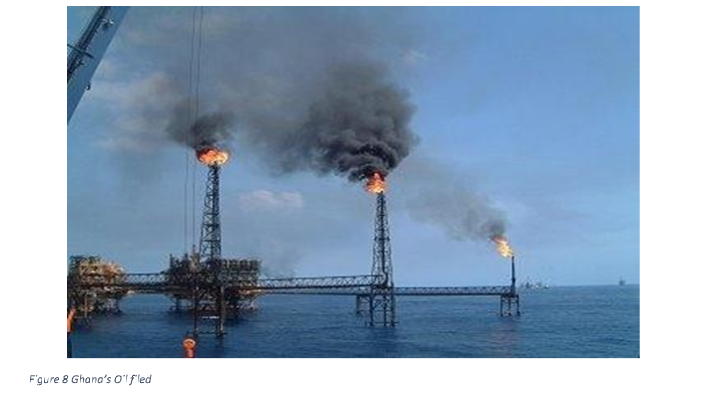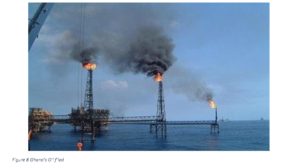
Oil Watch Ghana Project
Empowering Communities: The Oil Watch Ghana Project
Promoting Efficient Oil and Gas Management in Ghana
The discovery of oil is often viewed as a game-changer for a nation. It brings promises of economic growth, improved living standards, and greater opportunities. However, the benefits of oil extraction can only be realized when they are managed efficiently, and the negative impacts mitigated. This is where the Oil Watch Ghana Project comes into the picture, a project that ran from June to December 2010. Its mission was clear: to increase public understanding of the intricacies of oil extraction and advocate for enhanced socio-cultural and environmental equity in Ghana.
Illuminating the Complexities
Oil extraction, while promising prosperity, can also bring forth challenges. The Oil Watch Ghana Project recognized the need to educate the public about both the positive and negative potential impacts of this industry on local communities. It sought to empower the people with knowledge, enabling them to make informed decisions.
Amplifying Community Voices
Efficient oil and gas management doesn’t happen in isolation. It requires the active participation of local communities. The project took a two-pronged approach. First, it embarked on an elaborate media advocacy campaign to encourage greater community involvement in oil and gas governance. Media can be a powerful tool for amplifying the voices of those directly affected by oil extraction.
Informed Decision-Making
One of the most significant contributions of the Oil Watch Ghana Project was its commitment to continuous action research, documentation, and monitoring. These activities weren’t just academic exercises; they served a vital purpose. By gathering data and monitoring developments, the project aimed to provide the necessary insights for efficient policy decision-making in both the petroleum and environmental sectors.
Communities at the Center
The Oil Watch Ghana Project wasn’t just about oil; it was about people. It recognized the importance of placing communities at the center of the conversation. By increasing public understanding, amplifying community voices, and providing data for informed decisions, the project strived for a more equitable and sustainable approach to oil and gas management in Ghana.
The Role of G-RAP
This initiative was made possible through the support of G-RAP. Their commitment to promoting efficient oil and gas management in Ghana, along with their dedication to the well-being of local communities, was instrumental in the success of this project.
A Legacy of Empowerment
While the Oil Watch Ghana Project had a defined duration, its impact echoes through time. It left a legacy of informed communities, empowered to actively engage in the management of their natural resources. This project serves as a reminder that the path to efficient and equitable resource management is paved with knowledge, engagement, and continuous vigilance.
As we look back on the Oil Watch Ghana Project, we are inspired by the potential for positive change when communities are informed and engaged in decision-making. It’s a testament to the power of knowledge and the resilience of local voices in shaping their own destinies.
Read on:

Oil Watch Ghana Project
Empowering Communities: The Oil Watch Ghana Project
Promoting Efficient Oil and Gas Management in Ghana
The discovery of oil is often viewed as a game-changer for a nation. It brings promises of economic growth, improved living standards, and greater opportunities. However, the benefits of oil extraction can only be realized when they are managed efficiently, and the negative impacts mitigated. This is where the Oil Watch Ghana Project comes into the picture, a project that ran from June to December 2010. Its mission was clear: to increase public understanding of the intricacies of oil extraction and advocate for enhanced socio-cultural and environmental equity in Ghana.

Illuminating the Complexities
Oil extraction, while promising prosperity, can also bring forth challenges. The Oil Watch Ghana Project recognized the need to educate the public about both the positive and negative potential impacts of this industry on local communities. It sought to empower the people with knowledge, enabling them to make informed decisions.
Amplifying Community Voices
Efficient oil and gas management doesn’t happen in isolation. It requires the active participation of local communities. The project took a two-pronged approach. First, it embarked on an elaborate media advocacy campaign to encourage greater community involvement in oil and gas governance. Media can be a powerful tool for amplifying the voices of those directly affected by oil extraction.
Informed Decision-Making
One of the most significant contributions of the Oil Watch Ghana Project was its commitment to continuous action research, documentation, and monitoring. These activities weren’t just academic exercises; they served a vital purpose. By gathering data and monitoring developments, the project aimed to provide the necessary insights for efficient policy decision-making in both the petroleum and environmental sectors.
Communities at the Center
The Oil Watch Ghana Project wasn’t just about oil; it was about people. It recognized the importance of placing communities at the center of the conversation. By increasing public understanding, amplifying community voices, and providing data for informed decisions, the project strived for a more equitable and sustainable approach to oil and gas management in Ghana.
The Role of G-RAP
This initiative was made possible through the support of G-RAP. Their commitment to promoting efficient oil and gas management in Ghana, along with their dedication to the well-being of local communities, was instrumental in the success of this project.
A Legacy of Empowerment
While the Oil Watch Ghana Project had a defined duration, its impact echoes through time. It left a legacy of informed communities, empowered to actively engage in the management of their natural resources. This project serves as a reminder that the path to efficient and equitable resource management is paved with knowledge, engagement, and continuous vigilance.
As we look back on the Oil Watch Ghana Project, we are inspired by the potential for positive change when communities are informed and engaged in decision-making. It’s a testament to the power of knowledge and the resilience of local voices in shaping their own destinies.
Read on: